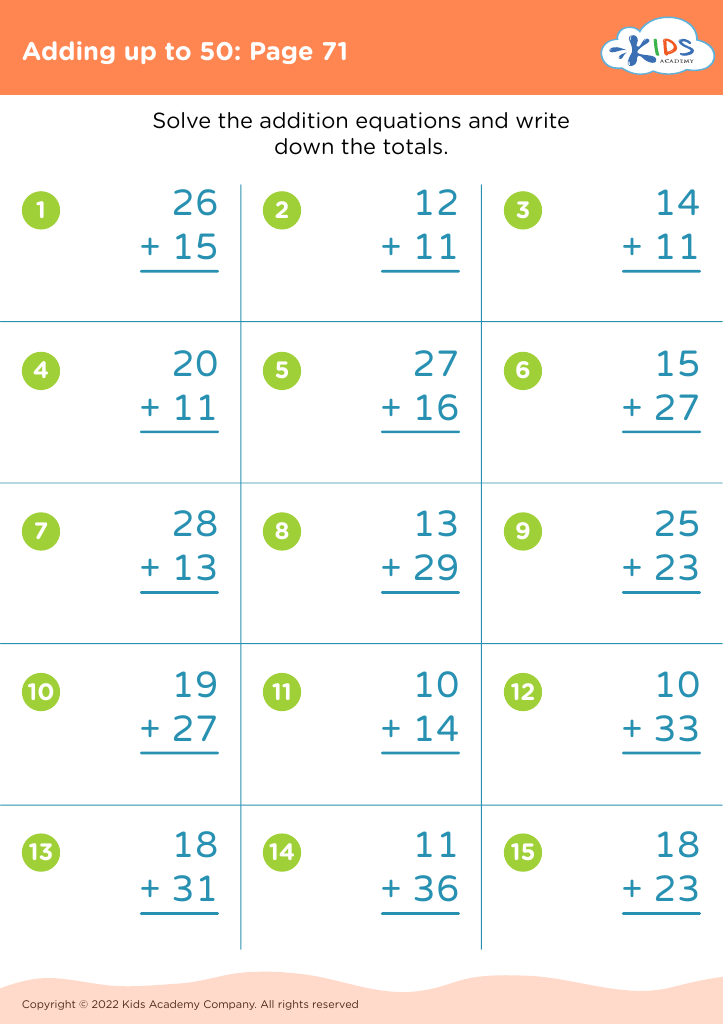Understanding clocks Math Worksheets for Ages 7-8
5 filtered results
-
From - To
Welcome to our "Understanding Clocks Math Worksheets" section, designed specifically for children aged 7-8! These engaging worksheets will help young learners grasp the concept of time through fun and interactive activities. From identifying clock hands to reading digital and analog time, our resources promote essential math skills in a playful manner. With clear instructions and colorful visuals, students will build confidence as they practice telling time and solving related math problems. Perfect for home or classroom use, these worksheets provide essential practice to ensure your child understands the foundation of counting and telling time effectively. Start exploring today!
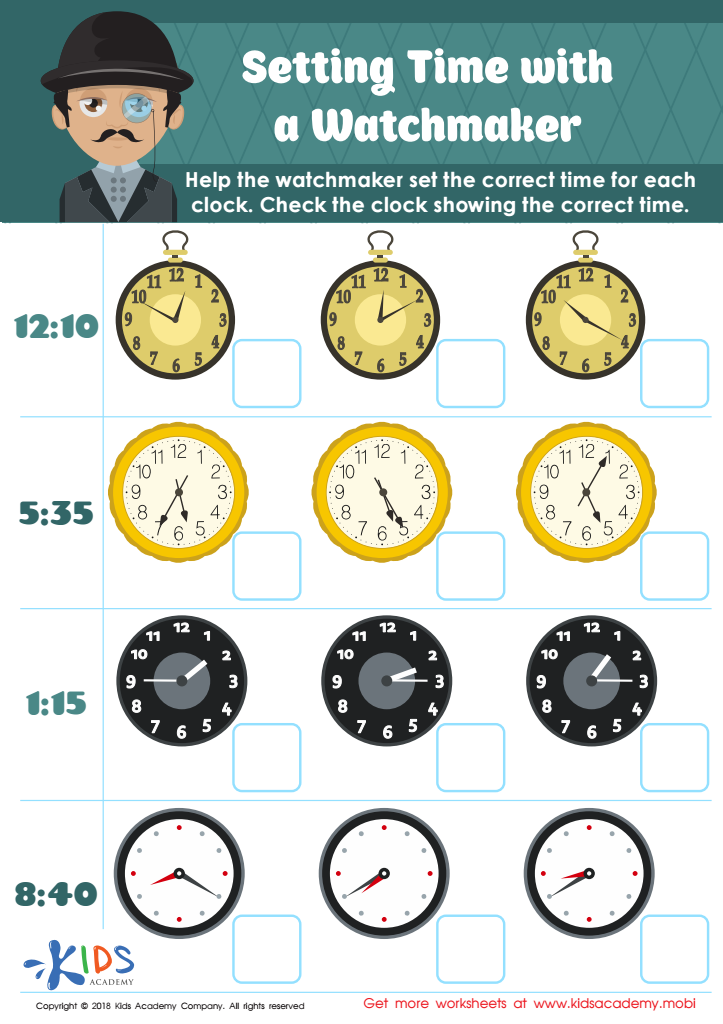

Setting Time with Watchmaker Worksheet
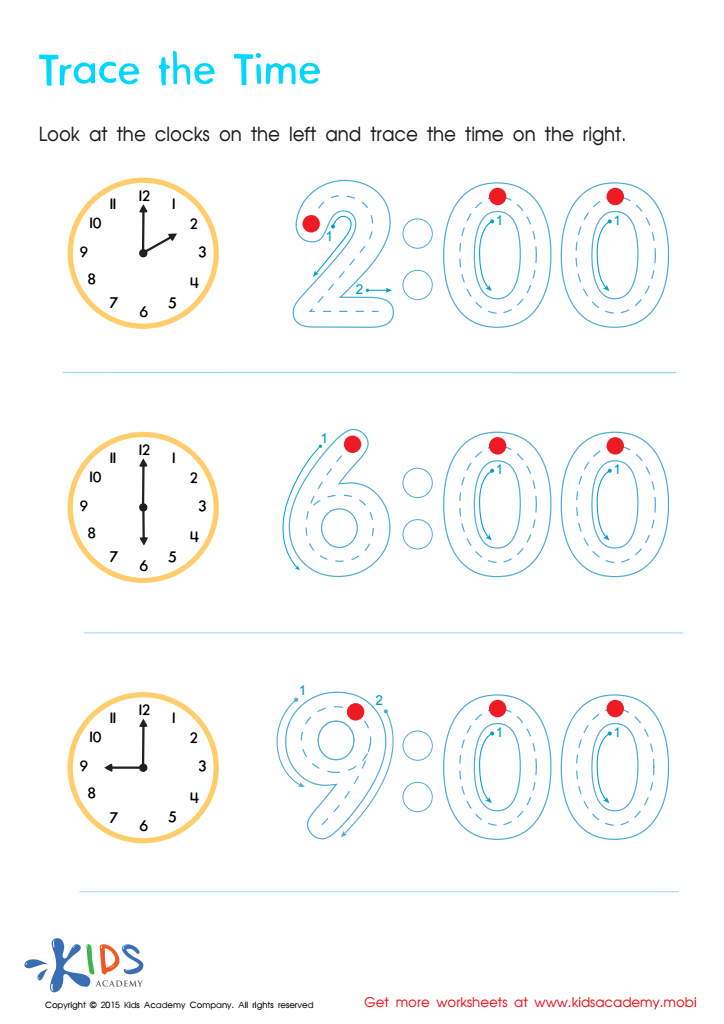

Telling The Time Worksheet: Part 2
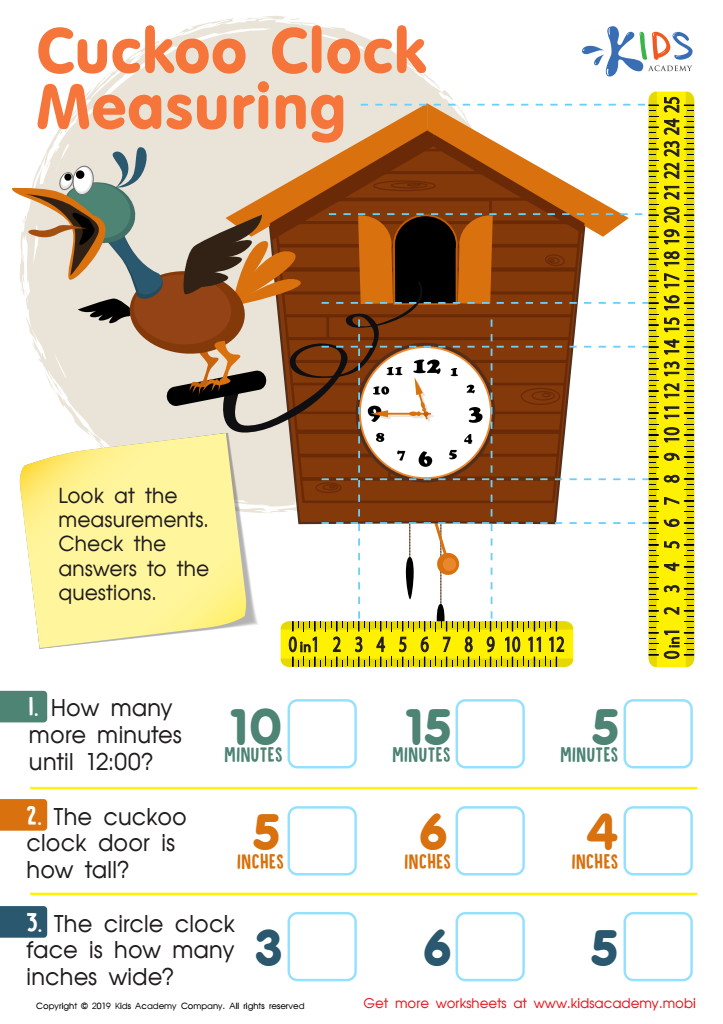

Cuckoo Clock Measuring Worksheet
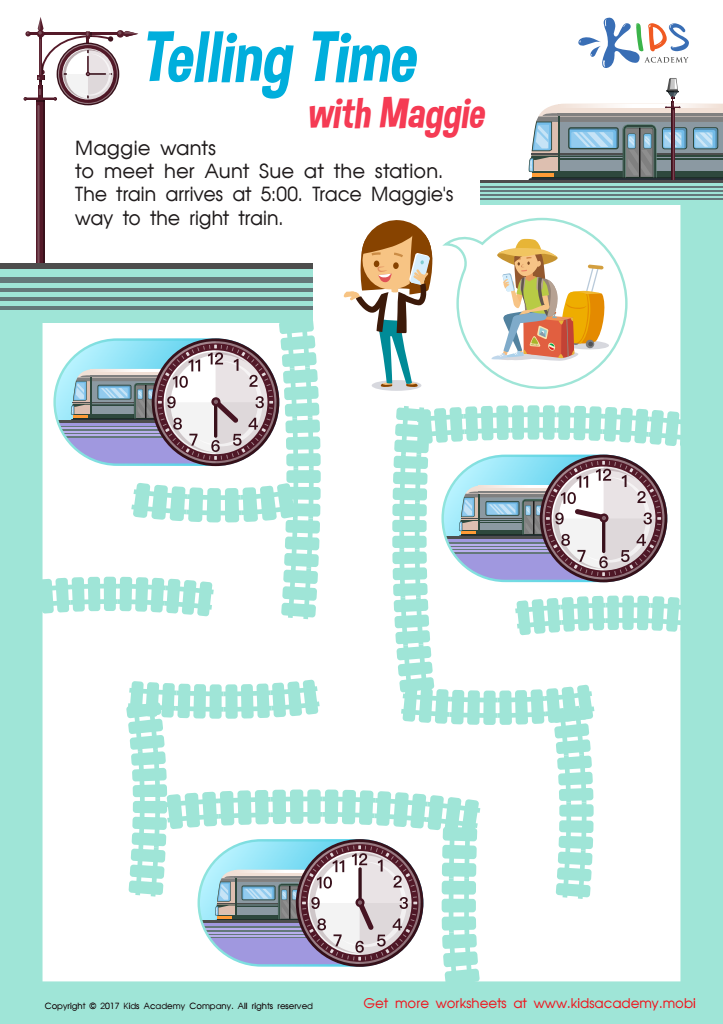

Telling Time With Maggie Time Worksheet
Understanding clocks and telling time is a fundamental math skill that significantly contributes to a child's cognitive and practical development. For children aged 7-8, grasping how to read clocks not only strengthens their mathematical understanding but also enhances their daily life skills. This knowledge builds a solid foundation for more complex mathematical concepts in the future.
Parents and teachers should care because learning to tell time helps children develop a sense of responsibility and time management. This skill encourages punctuality and helps children understand the concept of scheduling their activities and transitions throughout the day, fostering independence. Furthermore, telling time integrates several math concepts such as addition, subtraction, and the notion of fractions when dividing the clock into hours and minutes.
Moreover, sensory experiences and real-life applications, such as planning, routines, and even storytelling (e.g., relating schedules in stories), make time-telling an engaging subject for children. Encouraging children to understand clocks paves the way for crucial life skills, making it essential for both parents and teachers to support this learning process actively. Ultimately, fostering this skill enhances a child's confidence, critical thinking, and flexibility in a variety of contexts.
 Assign to My Students
Assign to My Students

